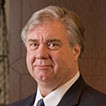Proposed Kansas House Bill Would Consolidate Water Agencies and Address Depletion
February 16, 2022
By: David M. Traster and Daniel J. Buller
House Bill 2686 introduced on Friday, Feb. 11, would create a new Kansas Department of Water and Environment (“KDWE”) made up of the Division of Water Resources (“DWR”) and the Division of Conservation from the Kansas Department of Agriculture (“KDA”), the Division of Environment from the Kansas Department of Health and Environment (“KDHE”), and the Kansas Water Office (“KWO”).
If enacted, the bill would also:
- Open the election of members of each Groundwater Management District’s (“GMD”) board of directors to all registered voters in the GMD instead of limiting electors to landowners and water users;
- Mandate a 50% reduction in the rate of groundwater declines;
- Impose new and increased fees on water users; and
- Reduce oversight of DWR Orders issued by the Chief Engineer.
A New Kansas Department of Water and Environment
If enacted, KDWE would be administered by a Secretary of Water and Environment appointed by the Governor with the consent of the Senate.
The bill would transfer the powers, duties, and functions of KDHE’s Division of Environment to the new agency and consolidate them with KDA’s Division of Conservation to form KDWE’s “Division of Environment and Conservation.” KDHE would be renamed the “Kansas Department of Health.”
DWR would be transferred to the KDWE but would retain the “Division of Water Resources” moniker.
KWO would be abolished, and its existing powers, duties, and functions would be transferred to the KDWE’s new “Division of Water and Environmental Planning.”
Mandating 50% Reductions in the Rate of Groundwater Declines
The bill would require each GMD to identify and set boundaries for “area[s] of concern” within each District no later than Jan. 1, 2024. Locations are “areas of concern” where:
- (A) Groundwater levels are declining or have declined excessively;
- (B) the rate of withdrawal of groundwater equals or exceeds the rate of recharge;
- (C) preventable waste of water is occurring or may occur; or
- (D) an unreasonable deterioration of the quality of groundwater is occurring or may occur.
Each GMD “may” develop a plan to address the “identified concerns” based on input from the public, water-right owners, and users within each area that will support conservation, prevent economic deterioration, and presumably promote stabilization of agriculture. Each plan is to be incorporated into the district’s management program and submitted to the Chief Engineer for review and approval by Jan. 1, 2026. If approved, the Chief Engineer must then implement plans that require action by DWR.
If a GMD fails to identify areas of concern, to submit a management program that includes a plan to address the concerns, or if a submitted GMD plan fails to adequately address the problems, the Chief Engineer is authorized to initiate Intensive Groundwater Use Control Area (“IGUCA”) proceedings that would make substantial reductions in the rate of withdrawal.
In the case of declining groundwater levels or withdrawals that exceed recharge, the chief engineer shall develop a plan to, at a minimum, reduce by 50% the 2000-2019 rate of groundwater declines as determined by the chief engineer, unless a stricter conservation goal is subsequently requested by the board.
Prior Appropriation
The bill states that groundwater resources can be conserved and extended using IGUCAs and Local Enhanced Management Areas (“LEMA”) authorized by the GMD Act, which could also impact existing water-right owners. In the GMD4 LEMA proceeding, for example, the GMD and DWR imposed reductions on all water appropriation rights authorized for irrigation use in the district, ignoring the prior appropriation doctrine even though the GMD Act specifically states that its policy is to “preserve basic water use doctrine” and to establish local control over groundwater by water users but only “insofar as it does not conflict with the basic laws and policies of the state of Kansas.” K.S.A. 82a-1020.
Because prior appropriation, i.e., “first in time is first in right,” is at the center of Kansas water policy, the legality of ignoring that doctrine is questionable. Nevertheless, the GMD4 LEMA has not been challenged in the appellate courts. (For statutory references to the prior appropriation doctrine in the Kansas Water Appropriation Act, see K.S.A. 82a-706, 82a-706b, 82a-706e, 82a-707, 82a-708b, 82a-710, 82a-711, 82a-711a, 82a-716, and 82a-717a.) The proposed bill would not impact the centrality of the prior appropriation doctrine under Kansas law.
The Water and Environment Maintenance Board
The bill would create a seven-member “Water and Environment Maintenance Board” chaired by the new Secretary of Water and Environment. Other members would be the chair of the Kansas Water Authority, the State Treasurer, one Senator appointed by the President of the Senate, one Representative appointed by the Speaker of the House of Representatives, and two members of the general public with “special technical experience and knowledge about water issues and the water industry” appointed by the Governor, subject to confirmation by the Senate.
New Fees
The water-protection fee imposed on public water suppliers and on water appropriated for industrial or stockwatering use would be increased from $0.03 to $0.05 per 1,000 gallons. Section 206.
The bill would impose a new “water rights fee” on all other water-right owners of $1.00 per acre-foot per year with a minimum of $25.00 and capped at $250.00. The fee would be due on or before March 1 of each year, the same deadline that each water-right owner must file an annual Water Use Report.
Groundwater Management District elections
The bill would substantially change the way Groundwater Management District Board Members are elected. “Eligible voters” would be all natural persons 18 years of age or older who are qualified electors in the district; in other words, all registered voters in the District. All board directors would be elected during primary and general elections conducted jointly with other local elections. Each eligible voter would be entitled to vote for as many candidates as the number of board directors that are to be elected but could not cast more than one vote for any one candidate.
The bill would eliminate the requirements that electors own 40 or more contiguous acres in the district or withdraw at least one acre-foot of groundwater per year from within the boundaries of the district. Public and private corporations, municipalities, and other legal or commercial entities that met the ownership or water-use requirements would no longer be able to vote for GMD board members.
The bill would impose term limits. Directors elected after Jan. 1, 2023, would be limited to two consecutive terms but would be eligible for election after sitting out for at least one full term. Section 19.
New GMDs
New GMDs could be formed by a steering committee that submits a petition signed by 10% of the newly defined “eligible voters” in a proposed district. As with board elections, formation of a new GMD may only be undertaken by registered voters. Current law permits owners of 40 or more contiguous acres or those who withdraw at least one acre-foot of groundwater per year, including public and private corporations, municipalities, and other legal or commercial entities to initiate and complete the process. Section 16.
When a proper petition is filed, county election officials would be required to place the question of whether a district should be formed on the ballot at the next primary or general election. Section 17.
Proposals to dissolve an existing GMD would be placed on the ballot at the next regular primary or general election. Section 19.
Stream Obstructions
A new subsection (e) would be added to K.S.A. 82a-301 providing that any structure now classified as a “dam” as used in the stream obstruction statutes, K.S.A. 82a-301–82a-328, would be considered a “stream obstruction” and not a “dam” if the primary purpose of the structure is to serve either as a dry detention road fill for state, county, or municipal government or a low-head dam that has a maximum height below the lowest stream bank. Section 178.
Current law makes violation of the stream obstruction statutes a Class C misdemeanor and requires the Attorney General to seek injunctive relief for violations. K.S.A. 82a-305a. The bill would allow the Chief Engineer to impose civil penalties of up to $1,000 per violation per day. Orders would be subject to review under K.S.A. 82a-1901, discussed in “The Chief Engineer as ’Agency Head’” section below. Section 182.
The bill would allow safety inspections of Hazard Class B and C dams to be performed under the direct supervision of a licensed professional engineer instead of by an engineer. Section 181.
Water-Transfer Hearing Panel
The Kansas Water Transfer Act, K.S.A. 82a-1501, (“WTA”) requires approval of proposals to transfer 2,000 acre-feet of water more than 35 miles from the point of diversion by a panel consisting of the Chief Engineer, the Director of the KWO, and the Secretary of Health and Environment. The Secretary can designate the Director of the Division of Environment to serve on the panel. K.S.A. 82a-1501a. Presumably, the Legislature intended that proposed transfers be reviewed by three independent agency heads.
By changing definitions, the bill would remove independent review of proposed transfers, making them subject to the de facto approval of the Secretary of Water and Environment.
The Directors of the Division of Water and Environmental Planning and the Division of Environment and Conservation would be the unclassified employees serving at the pleasure of the Secretary. New Section 3(b)(1) and New Section 4(b)(1). The Chief Engineer would be employed by the Secretary in the classified service. New Section 5(b)(1).
Thus, the panel would include the Secretary of Water and Environment and two members who report directly to the Secretary or three members who report directly to the Secretary.
It should be noted that the WTA makes the Kansas Administrative Procedures Act, (“KAPA”) K.S.A. 77-501, et seq., applicable to transfer proceedings except as specifically provided, K.S.A. 82a-1054(c), and states that the panel shall be deemed the “agency head” for water-transfer proceedings. K.S.A. 82a-1054(b)
The Chief Engineer as “Agency Head”
KAPA governs adjudicative hearings held by administrative agencies but only if other statutes say that it applies. K.S.A. 77-503(a). DWR has resisted efforts to make KAPA applicable to Orders issued by the Chief Engineer. Nevertheless, the 1999 Legislature enacted several provisions that impose some oversight, and those provisions have been amended from time to time since. See K.S.A. 82a-1901, et seq.
Orders issued under the following statutes are subject to review by the Secretary of Agriculture: K.S.A. 82a-708b (change applications); K.S.A. 82a-711 (new permits); K.S.A. 82a-714 (Certificates of Appropriation); K.S.A. 82a-718. (abandonment / forfeiture); K.S.A. 82a-737 (civil enforcement); and K.S.A. 82a-770 (allowing suspension of a water right for violations of the KWAA).
There are a few provisions that allow the Chief Engineer to issue orders that are not subject to the Secretary’s review, most notably, K.S.A. 82a-732 requiring owners to file annual water-use reports and permitting the Chief Engineer to impose civil penalties, suspend a water right indefinitely, or require use of telemetry.
The bill would add the following provision to K.S.A. 82a-1901 removing review of the Chief Engineer’s orders by the Secretary of Water and Environment:
For purposes of the Kansas administrative procedure act and Kansas judicialr review act, the chief engineer shall be considered the agency head and any orders issued by the chief engineer shall be considered final orders.
Section 249(d).
Under current law, unlike KDHE, the KWO, and KDA’s Conservation Division, DWR is not required to utilize hearing officers from the Office of Administrative Hearings (“OAH”) when the agency head does not serve as the hearing officer. Instead, when the Chief Engineer issues an order and a hearing is requested, the Chief Engineer must serve as the presiding officer or appoint a hearing officer who cannot be a current DWR employee, must be a licensed attorney, and must be “knowledgeable in the areas of water policies and administrative procedure.” K.S.A. 82a-1901(b). The Bill would make Orders issued by the Chief Engineer final orders subject only to judicial review.
For More Information
If you have questions or want more information regarding the restructuring of state water oversight, contact your legal counsel. If you do not have regular counsel for such matters, Foulston Siefkin LLP would welcome the opportunity to work with you to meet your specific business needs. For more information, contact Daniel Buller at 913.253.2179 or dbuller@foulston.com or David Traster at 316.291.9725 or dtraster@foulston.com. For more information on the firm, please visit our website at www.foulston.com.
Established in 1919, Foulston is the largest Kansas-based law firm. With offices in Wichita, Kansas City, and Topeka, Foulston provides a full range of legal services to clients in the areas of administrative & regulatory; antitrust & trade regulation; appellate law; banking & financial services; business & corporate; construction; creditors’ rights & bankruptcy; e-commerce; education & public entity; elder law; emerging small business; employee benefits & ERISA; employment & labor; energy; environmental; ERISA litigation; estate planning & probate; family business enterprise; franchise & distribution; government investigations & white collar defense; governmental liability; government relations & public policy; healthcare; immigration; insurance regulatory; intellectual property; litigation & disputes; long-term care; mediation/dispute resolution; mergers & acquisitions; Native American law; oil, gas & minerals; OSHA; privacy & data security; private equity & venture capital; product liability; professional malpractice; real estate; securities & corporate finance; supply chain management; tax exempt organizations; taxation; trade secret & noncompete litigation; water rights; and wind & solar energy.
Resources
Sign up to receive these issue alerts straight to your inbox here.
This update has been prepared by Foulston Siefkin LLP for informational purposes only. It is not a legal opinion; it does not provide legal advice for any purpose; and it neither creates nor constitutes evidence of an attorney-client relationship.







